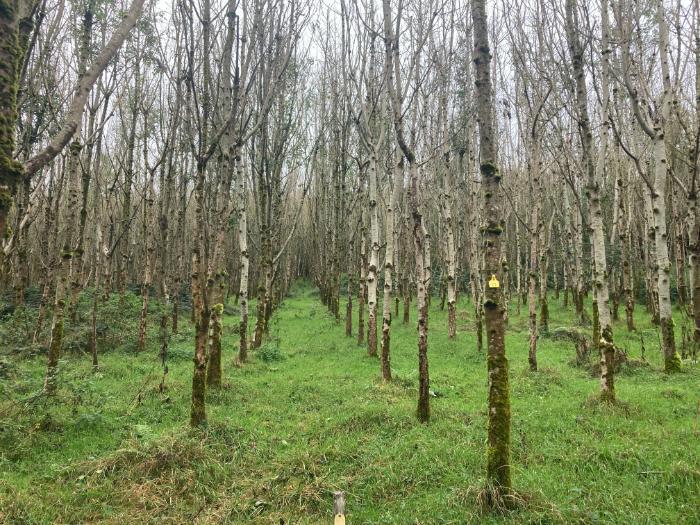25 October 2024
Using data to adapt Irish forests to a changing climate

Foresters and researchers generate vast quantities of data each year to inform decisions on all aspects of forestry, from sustainable management to tree breeding. Dr. Tomas Byrne, Tree Improvement Technologist, highlights the value of such data in addressing challenges related to climate adaptation.
Forest data, including tree size, stem volume, and crown shape, comprise measurements of individual trees that can guide management plans or aid in selecting superior individuals. When viewed at the forest level, data on parameters like stand density, canopy structure, and biodiversity provide valuable insights into forest dynamics. Additionally, data is collected on variables such as climate, soil, hydrology, forest health, and genetics. As the volume of forest data collected continues to grow, the tools used to analyze it have also become increasingly sophisticated.
In forestry, modeling refers to the use of statistical methods to process data and generate useful predictions about forest ecosystems. For example, models can predict the impact of thinning, forecast climate change effects, or evaluate how planting decisions influence an ecosystem. With more data available, modeling predictions become increasingly precise. Model complexity also varies; for example, simple linear models can predict how a single tree trait might respond to changing environmental conditions, while more advanced models, such as those used in forestry research projects like the GenESIS project , Genomic Evaluation for the Sustainable Improvement of Sitka spruce, integrate genetic, climate, and growth data for enhanced insights into species like Sitka spruce, thereby accelerating breeding capacity.
In recent years, machine learning has surged across many fields, from internet algorithms to research applications. In forestry, it has been particularly valuable in remote sensing, where it processes data collected by unmanned aerial vehicles (UAVs).
As climate change advances, Irish forests face increasing threats from migrating pests and extreme weather events. A new collaborative project from Teagasc, called Adap4Tree, aims to collect and analyze large datasets for key commercial broadleaf species in Ireland, helping to conserve and improve their genetics in response to climate change. This project will examine historical trials and establish new trials for broadleaf species. Through advanced data collection, analysis, and modeling, Adap4Tree will support the diversification and resilience of Ireland’s broadleaf forests as they adapt to a changing climate.
